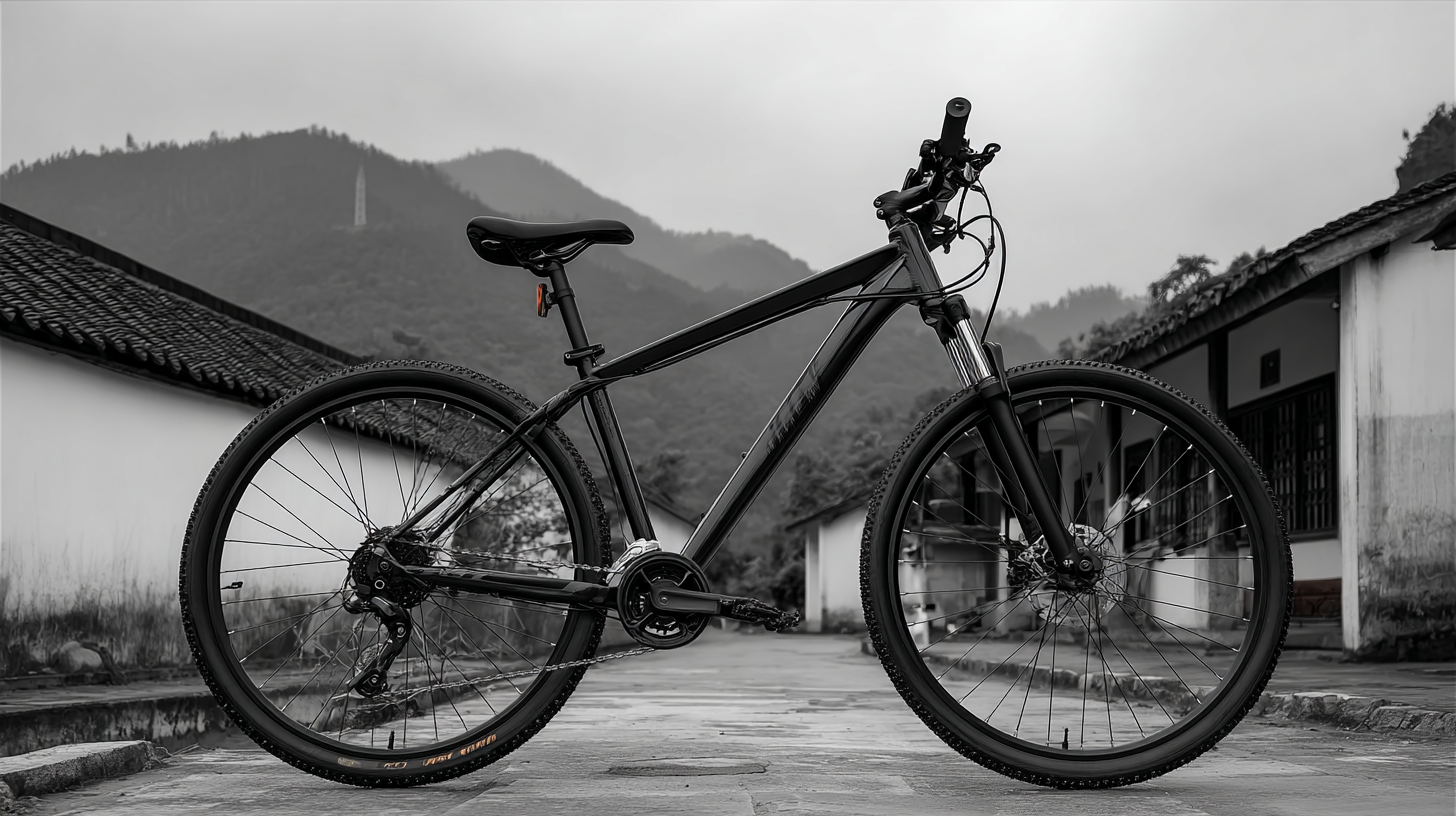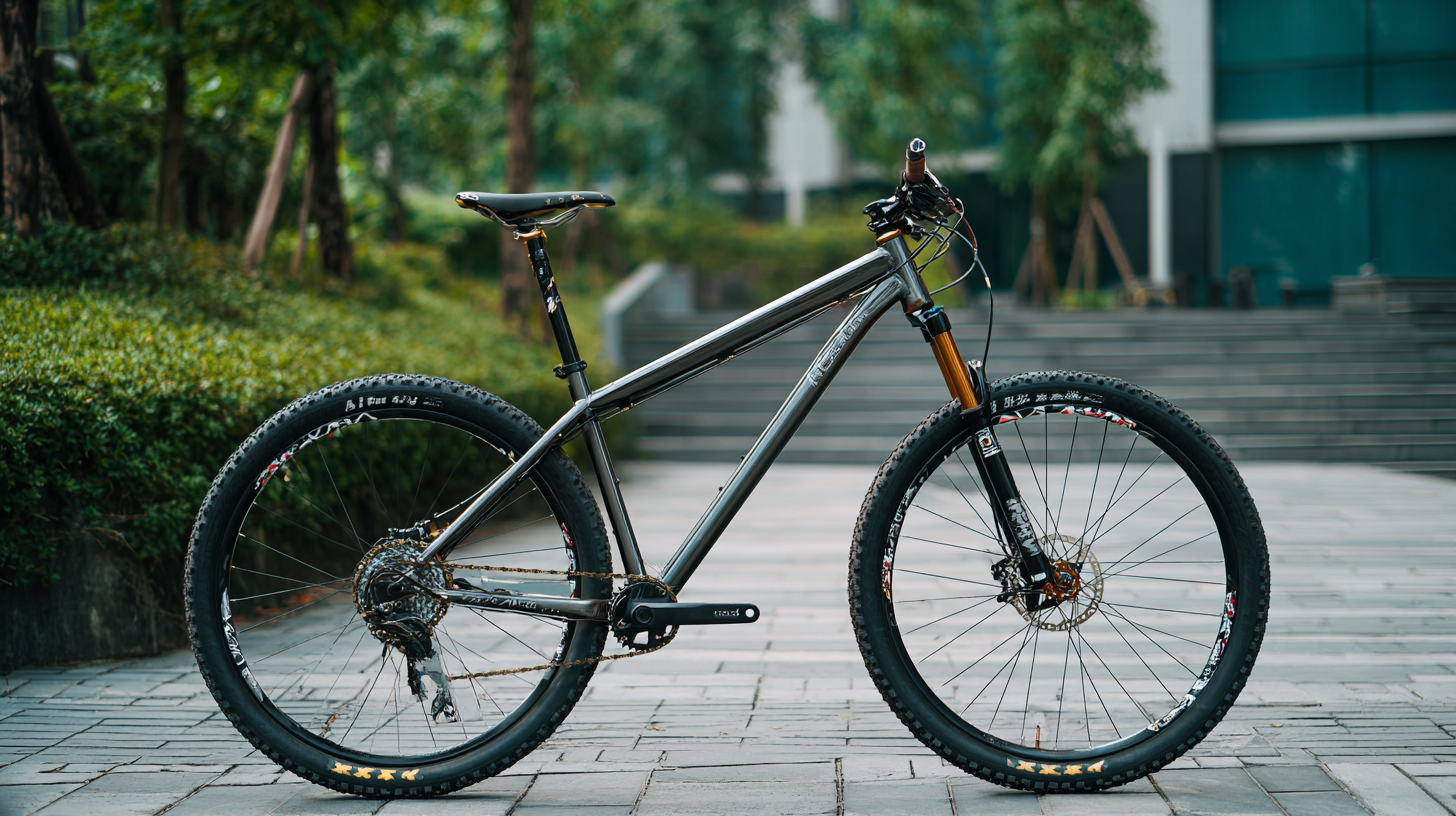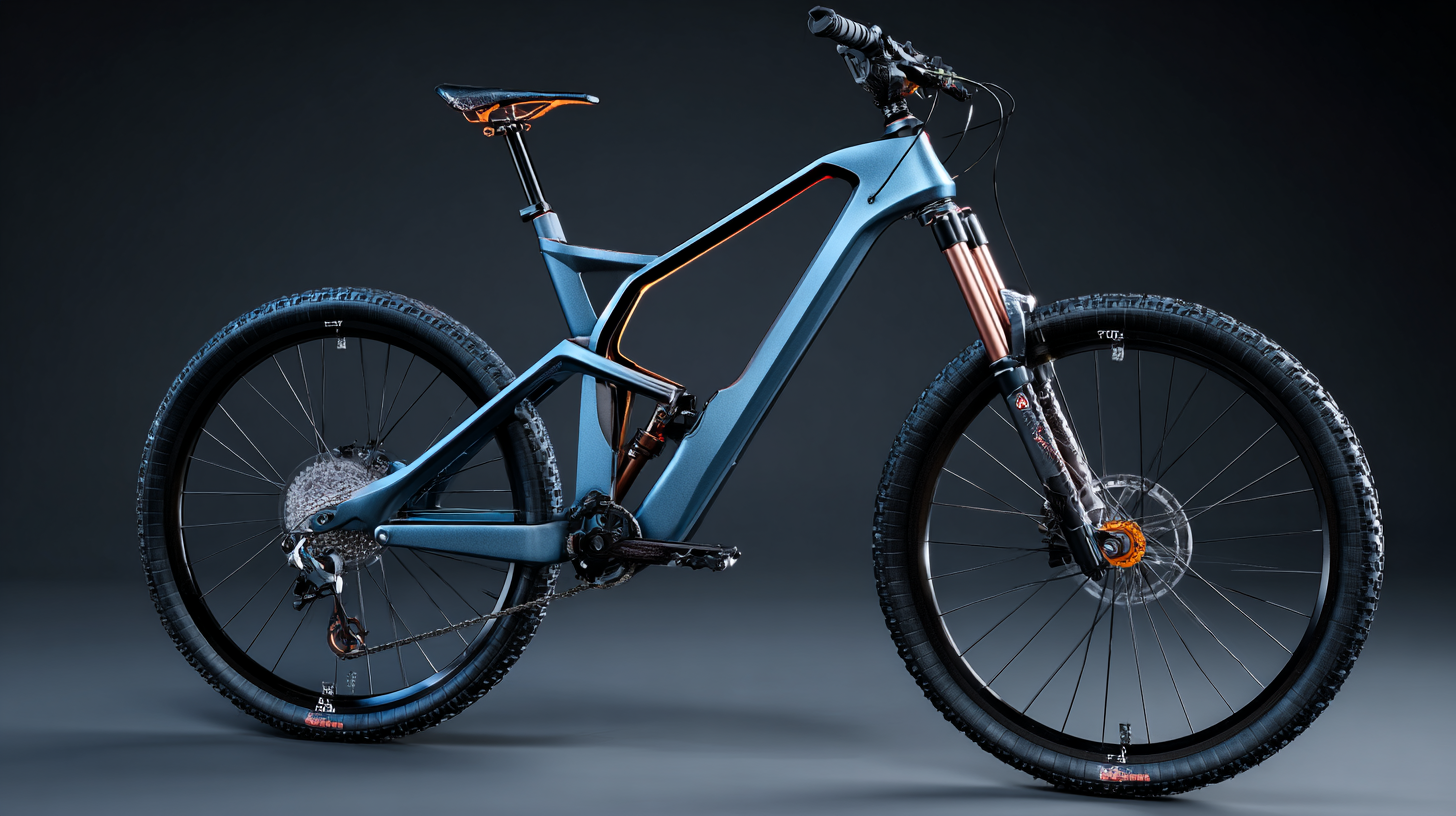In the ever-evolving landscape of global trade, the demand for high-quality, innovative products continues to rise, and at the forefront of this movement is the premium bicycle industry. Among the key players, a leading Chinese manufacturer is making waves with their exceptional range of front suspension bicycles. Designed to enhance comfort and control, these bicycles feature advanced bicycle front suspension technology that ensures a smooth riding experience, even on rough terrain. As we delve deeper into the mechanics and benefits of these cutting-edge bicycles, we will also explore strategic tips for maximizing your riding experience. This blog aims to empower cycling enthusiasts and retailers alike by highlighting the significance of investing in premium front suspension bicycles, ultimately contributing to a more dynamic and sustainable global trade environment.

Sourcing high-quality components for premium front suspension bicycles presents a significant challenge for manufacturers, especially in the competitive landscape of global trade. Chinese manufacturers, known for their robust production capabilities, often face hurdles in obtaining top-notch materials that meet international standards. This is crucial because the suspension system is critical in ensuring a smooth and enjoyable ride, influencing both customer satisfaction and brand reputation.
One of the primary issues is the variability in component quality from various suppliers. While China boasts a vast network of component manufacturers, not all can consistently provide the necessary precision and durability required for high-performance bicycles. Furthermore, navigating the complexities of supply chains, including logistics and timely delivery, can complicate the sourcing process. Manufacturers must invest time and resources in vetting suppliers, establishing quality control measures, and developing long-term partnerships to ensure reliability and excellence in their final products.
The export of bicycles, particularly premium front suspension models from a leading Chinese manufacturer, faces significant logistical hurdles, exacerbated by ongoing trade tensions and evolving tariff policies. Recent reports indicate that U.S.-China trade relations are at a historic low, leading to increased costs and complexities for exporters. For instance, shipments can be delayed due to heightened inspection protocols and tariffs, adding to the logistical nightmare for bicycle exporters aiming to penetrate global markets. According to industry data, logistics inefficiencies can inflate costs by up to 30%, making it challenging for businesses to remain competitive.
**Tip:** To navigate these challenges, manufacturers should invest in smart logistics solutions that streamline shipping processes and reduce lead times. Collaboration with technology-driven platforms can enhance efficiency by centralizing operations and minimizing reliance on intermediaries.
As the global marketplace shifts, it’s crucial for Chinese bicycle manufacturers to adapt. Initiatives like improving direct access for exporters by eliminating high commission fees can significantly enhance their global outreach. The emergence of integrated digital solutions in trade offers promising avenues for overcoming traditional barriers, ensuring that exporters can meet international demand without compromising on quality or delivery times.
**Tip:** Regularly assess your logistics partners and seek alternatives that offer digital tracking and automated customs clearance. This can lead to greater visibility and improved management of shipments, ultimately reducing delays and costs.
| Type of Bicycle | Weight (kg) | Price (USD) | Export Regions | Logistical Challenges |
|---|---|---|---|---|
| Mountain Bike | 15 | 450 | North America, Europe | Customs delays, Tariff increases |
| Road Bike | 10 | 600 | Australia, Europe | Shipping costs, Transportation regulations |
| Hybrid Bike | 12 | 520 | Asia, South America | Inventory holding, Quality compliance |
| Electric Bike | 20 | 1200 | North America, Europe, Asia | Battery regulations, Logistics coordination |
 In the landscape of global trade, maintaining competitive pricing while managing rising manufacturing costs is a significant challenge for many businesses. This is particularly true for a leading Chinese manufacturer of premium front suspension bicycles, which is committed to offering high-quality products without compromising affordability. By streamlining production processes and sourcing raw materials strategically, manufacturers can effectively navigate the complexities of the marketplace.
In the landscape of global trade, maintaining competitive pricing while managing rising manufacturing costs is a significant challenge for many businesses. This is particularly true for a leading Chinese manufacturer of premium front suspension bicycles, which is committed to offering high-quality products without compromising affordability. By streamlining production processes and sourcing raw materials strategically, manufacturers can effectively navigate the complexities of the marketplace.
One effective tip for keeping costs in check is to adopt lean manufacturing principles. This approach reduces waste and increases efficiency, ultimately leading to lower production expenses. Regular assessment of supply chain logistics can also yield savings. By optimizing transportation routes and negotiating better terms with suppliers, manufacturers can enhance their profit margins while still delivering competitive prices.
Additionally, investing in technology and automation can significantly reduce labor costs. Automation not only speeds up production but also minimizes human error, resulting in a more reliable output. Thus, by leveraging technology and implementing innovative strategies, manufacturers can continue to empower global trade while offering premium products at competitive prices.
In the realm of international trade, compliance with regulations is becoming increasingly critical, especially for businesses engaged in cross-border transactions. According to Zhang Guoxun, a senior advisor at a leading law firm, companies must establish robust compliance systems to navigate regulatory challenges effectively. The complexity of global trade law, exacerbated by recent geopolitical shifts and national policy changes, makes it essential for manufacturers—such as those producing premium front suspension bicycles—to stay informed and adaptable.
Data indicates that businesses face numerous pressures due to fluctuating trade policies and compliance demands. For instance, recent trade restrictions imposed by Southeast Asian countries like Indonesia and Vietnam on e-commerce platforms underscore the necessity for companies to align with local regulations over time. As international markets evolve, businesses must leverage expert insights and impose strict compliance protocols to mitigate risks related to regulatory non-compliance, securing their position in the competitive global market. Emphasizing the importance of a dedicated legal and compliance team can further enhance a manufacturer's ability to thrive amid these stringent regulations.
In the ever-evolving landscape of global trade, consumer preferences play a crucial role in shaping the designs of premium front suspension bicycles. As more riders seek comfort and performance, manufacturers are compelled to innovate and adapt their products to meet these changing demands. Features such as lightweight frames, advanced suspension systems, and customizable options have become increasingly important to the modern cyclist, reflecting a shift towards a more personalized riding experience.
Market trends also reveal a growing emphasis on sustainability, leading manufacturers to explore eco-friendly materials and production processes. Consumers today are not just looking for high-quality bicycles; they are also concerned about the environmental impact of their purchases. This awareness drives brands to invest in greener technologies, such as recycled materials and sustainable sourcing, effectively transforming consumer values into pivotal design elements. As preferences continue to shift, the ability to anticipate and respond to these trends will distinguish leading manufacturers in the competitive bicycle market.

